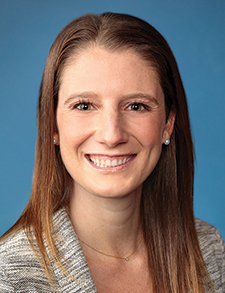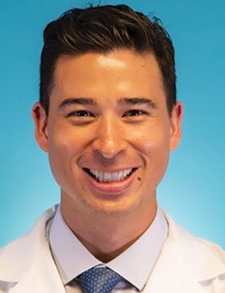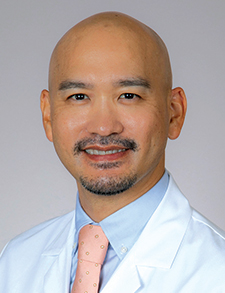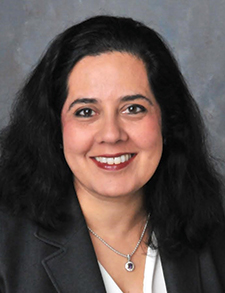 You would hope that multiple years of toiling away in a grueling 80+-hour weekly schedule would prepare you for anything. Yet, many successful otolaryngologists acknowledge the steep learning curve they encountered when making the transition from residency to full-time practice. Four otolaryngologists (three of whom received Triological Society grants) shared lessons learned in their first five years of practice, and tips on how today’s residents can navigate some of the inherent challenges.
You would hope that multiple years of toiling away in a grueling 80+-hour weekly schedule would prepare you for anything. Yet, many successful otolaryngologists acknowledge the steep learning curve they encountered when making the transition from residency to full-time practice. Four otolaryngologists (three of whom received Triological Society grants) shared lessons learned in their first five years of practice, and tips on how today’s residents can navigate some of the inherent challenges.
Explore This Issue
August 2024Ashley E. Kita, MD

Ashley E. Kita, MD – Assistant professor, David Geffen School of Medicine, University of California Los Angeles (UCLA)
Dr. Ashley Kita earned an undergraduate degree in engineering before pursuing her medical degree in otolaryngology at the David Geffen School of Medicine at UCLA in 2015, where she also completed her residency in head and neck surgery. In 2021, Dr. Kita completed UCLA’s Biodesign Fellowship. Today, her time is split between seeing patients and doing translational research funded by the National Institutes of Health, the Triological Society, and the American College of Surgeons.
Q: How has your education in engineering informed your work in otolaryngology?
Otolaryngology is the perfect field for someone with an interest in engineering. It is a field full of opportunities to investigate a patient’s symptoms and then use that information to select treatments to target the problem. Many of my patients’ problems can be understood with mechanical or engineering-related analogies. I enjoy explaining things in ways my patients can understand, whether it be describing a tympanogram as “a gust of air into the sail of the ear drum” or vocal folds as “shutters on the windpipe.” It is wonderful to experience the moment when the understanding “clicks” for patients because we can then troubleshoot their problems together.
I did a nonclinical biodesign fellowship because I want to see the technologies developed in my lab go on to impact the care of patients. I’ve served on several American Academy of Otolaryngology-Head and Neck Surgery (AAO-HNS) committees, including the Medical Devices and Drugs Committee, where we run an annual innovation competition for early-stage ideas, known as ENTrepreneur Faceoff. This year, I’m excited to serve on the Sleep Disorders Committee.
Q: Given your unique background, how did you go about finding a position?
Coming at it from the view of a surgeon-scientist, it was important for me to have support for a very early research career until I was able to get extramural funding. And, if you’re negotiating for a position that involves research in academia, you want to be clear about the structure and timing of your days. I did, and still do, a lot of cell culture and animal work. So having research days spaced out in a way to accommodate this was key for success. The job description should fit you; you shouldn’t necessarily have to bend over backward to fit the needs of the job description. That said, given every individual’s unique needs, I encourage applicants to have an open dialogue with their future group or employer to see whether a position could be adapted to their needs.
Q: What qualities have helped you develop your career in these first few years of practice?
I’m very willing to quietly chip away at problems and accept that solutions can sometimes take quite a while to appear. Inspiration can come in unexpected ways. We recently had a problem in the lab where we were trying to figure out how to do laryngoscopy in an animal model, and the sizing or price point of most scopes made this technically difficult. Ultimately, I was able to adapt an $11 video otoscope for my needs at a fraction of the cost of other solutions and with the added benefit of easy technological integration through a user app.
While in clinic, I try not to get caught up in electronic health record system frustrations and tasks that feel only tangentially related to patient care by mentally reframing things. I take a step back and remember that helping patients feel better is what brings me joy and that my energy is better spent on pondering more challenging patient presentations than on negative emotions. This career was once just a dream, and now I have the great honor of living it. Reminding myself of this helps put things into perspective.
Matthew Shew, MD

Matthew Shew, MD – Assistant professor of otology and neurotology, department of otolaryngology–head and neck surgery, Washington School of Medicine, St. Louis, Mo.
Dr. Matthew Shew earned his medical degree from the University of Indiana School of Medicine in 2014, completed his residency at the University of Kansas in 2019, and earned his fellowship in neurotology at Washington University in St. Louis in 2021. Dr. Shew currently sees patients at two Ear, Nose & Throat Center locations, at the Center for Advanced Medicine in St. Louis, and at Barnes-Jewish West County Hospital in Creve Coeur, Mo.
Q: How has your career path diverged from the plans you made in residency?
I think the biggest divergence and change has been where my research has taken me. I always knew that I wanted research to be a central part of my career, but I wasn’t sure exactly how that would take shape. Over time, I’ve learned the importance of being open to opportunities and approaching my career with an open mind, which has allowed it to develop organically and has led me down clinical paths I hadn’t initially considered and led to unexpected opportunities that have significantly advanced my development and career.
Q: What factors do you feel have made you successful?
First would be the foundational technical and clinical skills I developed during my residency and fellowship, which now allow me to make informed and confident decisions. I owe a great deal to the faculty and mentors whose advice and wisdom have been pillars of my early success and whose voices are always in the back of my head—whether I want them there or not!
Second, having a strong support system and collaborative culture at my first job has been instrumental. My talented and insightful faculty partners are always open to providing valuable feedback and offering insights on even the smallest things. Being able to discuss challenging cases at the skull base tumor board, for example, has helped me to adapt to and navigate the complexities of clinical practice.
Third, a mindset of lifelong learning has also been key. Our field is constantly evolving, and staying updated on the latest research and advancements has enabled me to adapt and provide the best patient care I can.
Q: Have you had a strong mentor in your career?
I’ve had several mentors and chairs who have been pivotal in my development. Maintaining relationships from residency training, fellowship, and junior faculty partnerships is critical. It has been incredibly helpful to seek advice from faculty who are at various stages of their careers or pursuing different academic paths, and even from across different specialties.
Q: What advice do you have for residents negotiating their first contract for an academic-based practice?
Understand that many aspects of your contract in academic medicine are non-negotiable and often follow a standard template based on your institution. However, there are several key areas where your chair can provide support and negotiate on your behalf to help you succeed as an academic physician. Therefore, whatever your goals, it’s essential that your chair shares and supports your academic vision. This alignment is crucial for them to leverage their position to help you achieve your career goals. If you have a clearly lined-out plan, budget, and execution strategy targeted to your academic niche, you’re likely to get much more out of any negotiations.
It’s also important to evaluate the institution’s resources. Look for a job offer from an institution that provides the support you need, including research facilities, funding opportunities, and a collaborative environment. Assess the department’s culture, current collaborations, and history of promoting junior faculty with ambitions similar to yours. Lastly, seek guidance from mentors with experience in academic medicine. They can provide valuable insights and different views into what to look for in a job offer and how to negotiate effectively.
Seiji B. Shibata, MD, PhD

Seiji B. Shibata, MD, PhD – Assistant professor, clinical otolaryngology-head and neck surgery, Caruso Department of Otolaryngology-Head and Neck Surgery, Keck School of Medicine, University of Southern California (USC), Los Angeles; staff physician, USC Verdugo Hills Hospital
Dr. Seiji Shibata earned his medical doctorate and PhD in hearing science from Kansai Medical University in Osaka, Japan, and completed a residency in otolaryngology–head and neck surgery at Kansai Medical University Hospitals. Pursuing further training in the U.S., Dr. Shibata completed a residency in otolaryngology–head and neck surgery and a surgical fellowship in neurotology at the University of Iowa Hospitals and Clinics in 2020. Currently, he sees 60-70 patients per week and performs 120-140 otologic and skull base surgeries per year.
Q: What are the differences when you look at your career now compared to what you imagined it would be when you were a resident?
My career goals were set early on. I wanted to become a clinician–scientist, and I am living my dream. Many people diverge from their original career paths, which is totally fine! The con might be that they may never know what would have transpired with the original plan, but such is life.
Q: How instrumental have mentors been to the success of your academic and professional journeys?
I had several mentors in my path through residency, fellowship, and as an early-stage faculty member. They have all provided me with invaluable clinical, scientific, and academic advice that has been imperative to my success as a clinician–scientist. I maintain close relationships with my mentors through direct interactions at national meetings once or twice a year. We also text message quite a bit.
Q: Do you have any advice for residents negotiating their first contract?
The first contract coming out of residency or fellowship always creates a lot of anxiety. There might not be much that can be negotiated, but it does not hurt to try, especially if it’s something that you feel strongly about. The work environment and colleagues are extremely important. And if a situation does not work, there is no shame in moving on.
Q: What professional activities take a large share of your time?
In addition to seeing patients and performing surgeries, I am also the principal investigator of my basic science research lab. This requires much of my time outside of the clinic and operating room. Obtaining grants, teaching, experiments, and lab management—in addition to the need to publish papers—are difficult to balance but not unexpected. It’s often referred to as the “academic grind”. Although these tasks can be stressful, it is often very rewarding in the end.
Sujana S. Chandrasekhar, MD

Sujana S. Chandrasekhar, MD -Partner, ENT and Allergy Associates in Parsippany, N.J.; president, American Otological Society; director of neurotology, James J. Peters Veterans Administration Medical Center in Bronx, N.Y.; clinical professor of otolaryngology, Zucker School of Medicine at Hofstra-Northwell in Hempstead, N.Y.; clinical associate professor of otolaryngology, Icahn School of Medicine at Mount Sinai in New York; staff physician, Lenox Hills Hospital and Manhattan Eye, Ear, Throat Institute, James J. Peters Bronx VA Medical Center, Mount Sinai Hospital, New York Eye and Ear Infirmary, and Saint Barnabas
Medical Center.
Dr. Sujana Chandrasekhar earned her medical degree at Mount Sinai School of Medicine and completed her internship and residency at New York University Medical Center and her fellowship in otology/neurotology at the House Ear Clinic and Institute in Los Angeles. She has been in practice for 30 years.
Q: What has your career trajectory been since completing your fellowship?
I started my career in academic practice, went into solo private practice 10 years later, and then added a part-time position at the VA Medical Center. Six years ago, I joined a large, single-specialty private practice, where I am a partner. I now teach residents from several different ENT residency programs and mentor people in practice, both in my private practice and in academic institutions. I see about 90 to 100 patients per week, and I operate one to two days a week. I very much enjoy service and leadership. In my roles for the Triological Society and as consulting editor for Otolaryngologic Clinics of North America, I keep up with cutting-edge practice, research, and education across the entire field of otolaryngology (more than my subspecialty of otology/neurotology). For Clinics, I established a podcast where I interview each publication’s guest editors. During the pandemic closures, I co-executive produced and co-hosted a video web show called She’s On Call [currently viewable on YouTube]. It was stimulating and I honed my onscreen personality, but it was about 10 extra hours of work per week per show.
Q: What made you decide to move from academic to private practice?
I thought I would live and die in the ivory tower of academic medicine. A decade into it, I found that it was not to be. The following things happened after I left academics and went into private practice: I had my fourth child; I made a lot more money; and I did more research and academic writing, as my time was not spoken for outside of patient hours. I am more accessible to patients and referring doctors, and I can teach students and residents from several academic institutions. I also found a passion for leadership. I love to travel, and I speak on ENT and leadership around the world. I am accountable to myself, and I can follow my passions. It takes some bravery to leave the ivory tower, but it can be done.
Q: What advice would you give to a resident negotiating their first contract?
“Negotiation” is not a four-letter word. You are serious about your career. Act like it. Ask how the institution or practice will help you grow. Use national database information to ensure you are being paid fairly. Make sure your contract includes protected time for research, service, or administrative duties. Do not sign a contract without having a knowledgeable employment lawyer review it.
Q: How would you describe your formula for success?
Keep up with the literature, be willing to learn and incorporate new techniques, attend conferences, participate in committees, stay curious, respect others, enjoy new and old friendships in ENT, and believe in yourself without being arrogant. Being dedicated to my profession, my patients, and my community are the three legs of my success stool.
Linda Kossoff is a freelance medical writer based in Woodland Hills, California.
